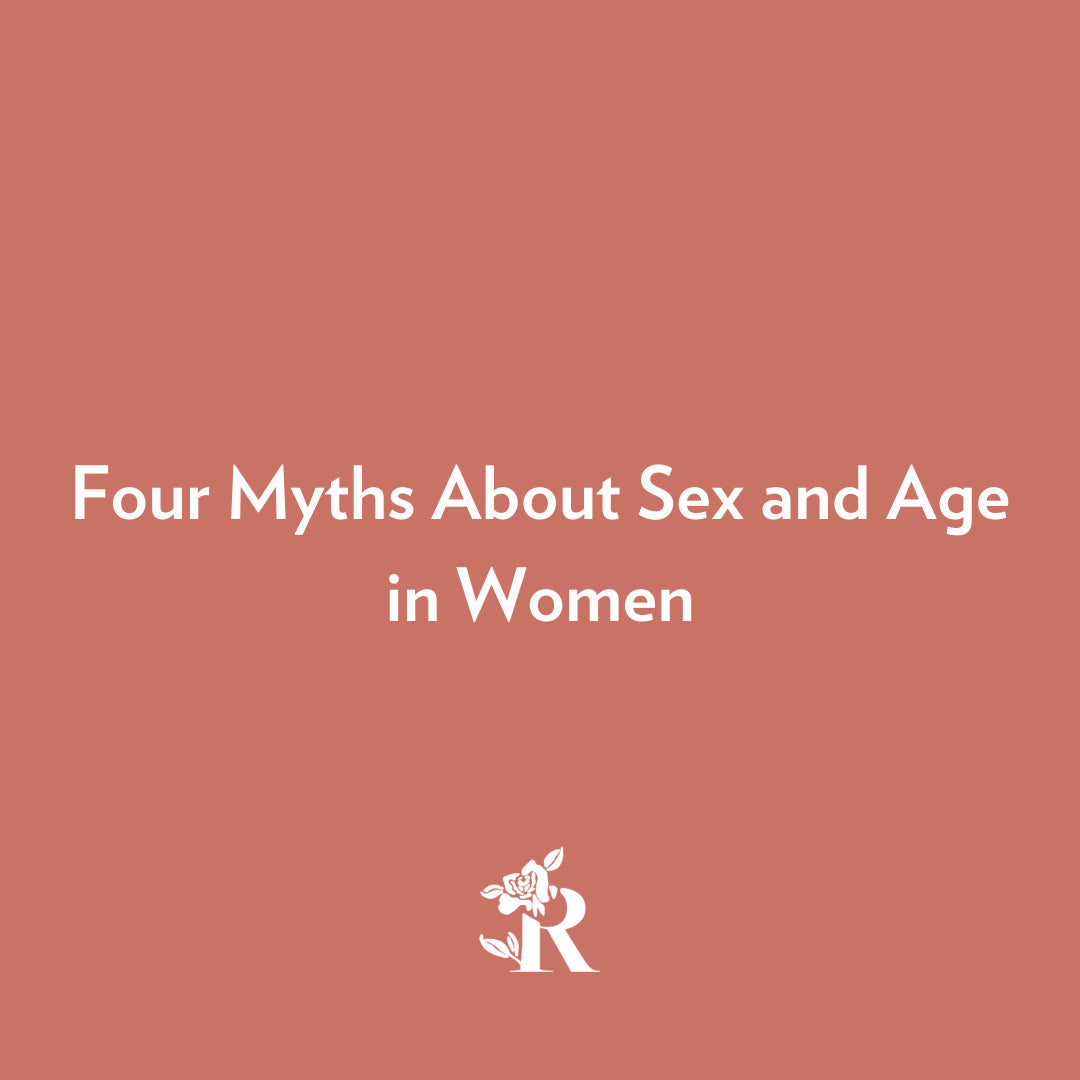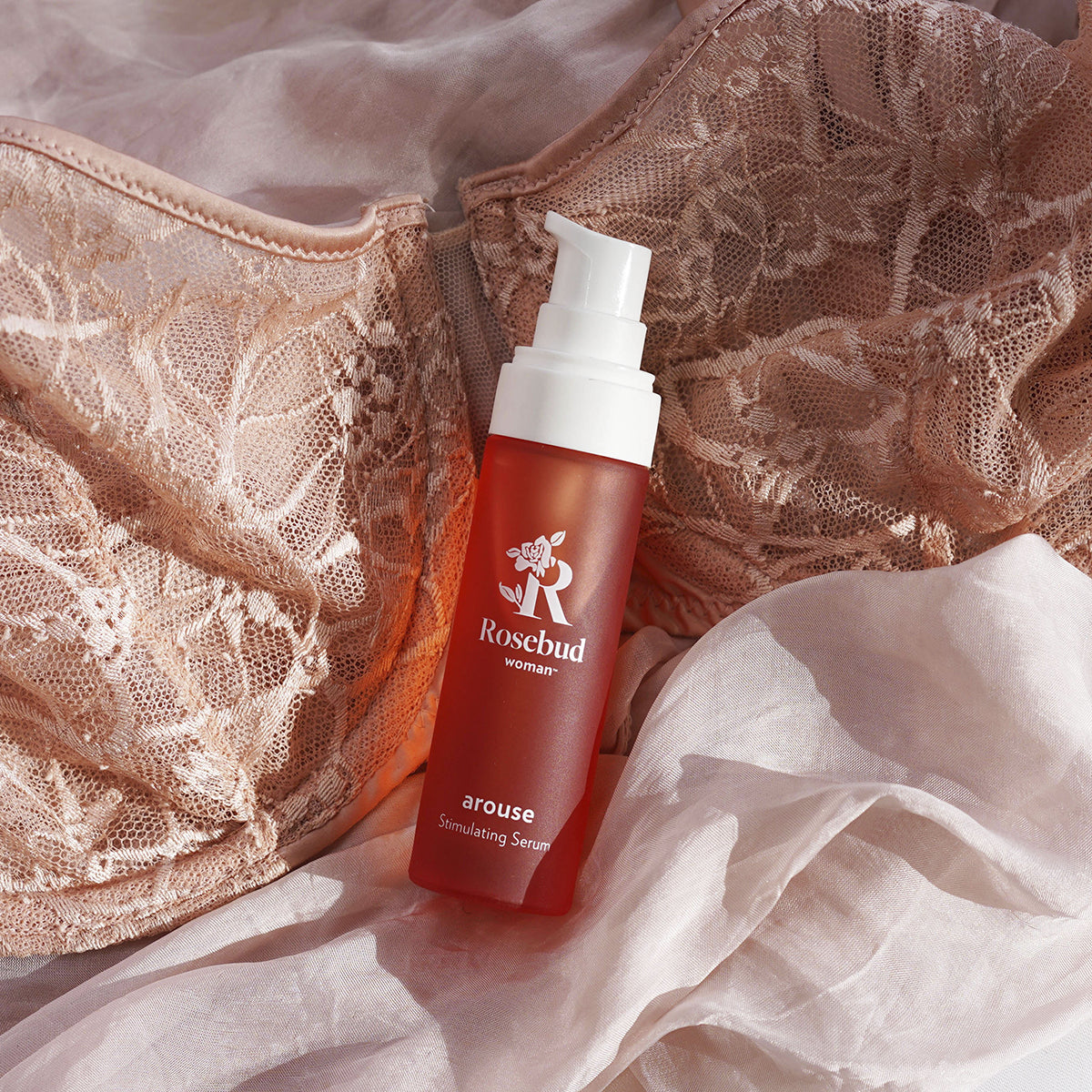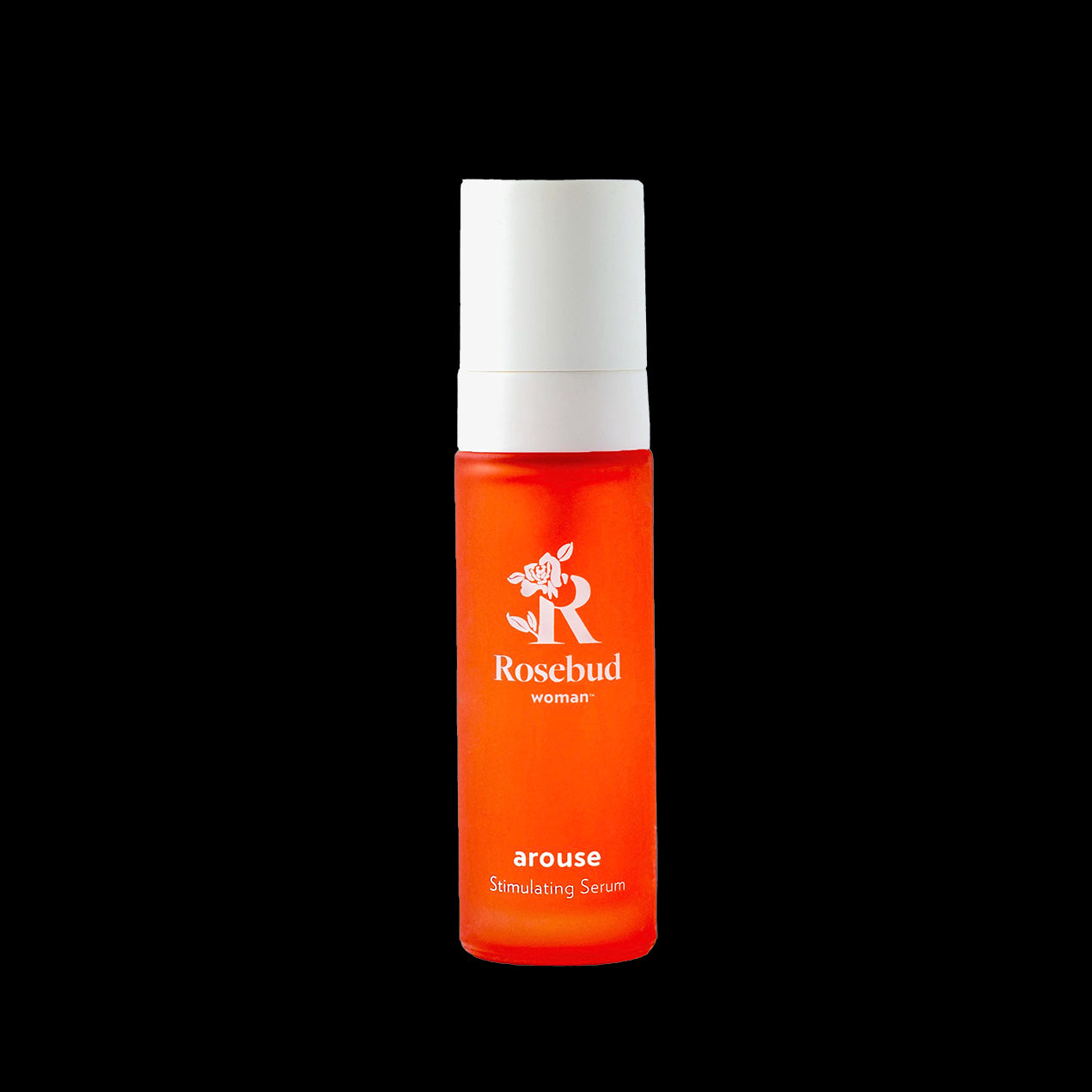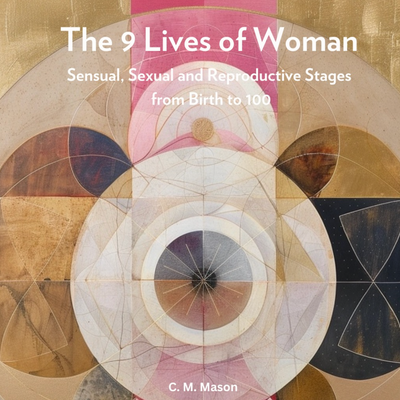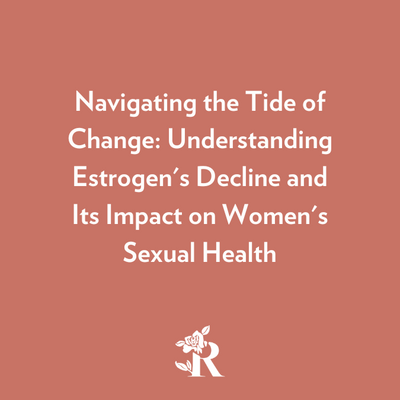Four Myths About Sex and Age in Women
Until you get to a certain age, you might have some misconceptions about just how sexual and sexy people feel- at all ages. Let's do some mythbusting!
Myth 1: Older Women Don’t Want to Have Sex
It depends: A study conducted by the International Society for Sexual Medicine found that sexual frequency in women decreased with age. However, nearly 25% of partnered women over age 70 had sex more than 4 times a week.
Over 70 and thriving: Sadly, people are having sex less frequently across the board than in past decades. Yet, recent polls published by the American Psychological Association found that while sexual frequency per month has decreased since the 90s in married couples, it has actually increased in people over age 70. Of course, there are numerous factors that may contribute to these rates, including that fewer millennials are marrying (and married couples generally have a higher frequency of sex) and people are living longer.
94%!: In a 2021 survey of Rosebud Woman’s community, 94% of our women in perimenopause and beyond were either sexually active with others (71%) or wanted to be and were sexually solo in the meantime (22%). 7% were intentionally celibate.
Myth 2: Your body no longer responds to arousal after menopause.
Once we reach menopause, we often have to make some changes when it comes to having enjoyable sex. This is because hormones have a significant impact on our sex drive and ability to orgasm. According to Rosebud Woman partner, Gynecologist and member of the North American Menopause Society Dr. Barb DePree, M.D., “The lack of estrogen [in menopause] causes less blood supply, less sensitivity to the area.”
Dr. DePree also notes that other factors may impact your ability to have enjoyable sex, including:
- Medications that affect orgasm (like certain classes of antidepressants)
- Atrophy of the vaginal tissues
- Vaginal dryness
- Prior trauma (including nerve damage)
- Poor emotional connection with your partner
- Stress
Women can certainly orgasm after they have hit menopause. However, it may require a little more effort than it did in your 20s. For example, you may need to engage in longer foreplay or add in a vibrator to provide more direct clitoral stimulation. Similarly, it may take a little more effort to “get your head in the game,” so you may benefit from setting the stage with lighting, mood music, massage, or reading a sexual excerpt from a book. Our Arouse Stimulating Serum was designed for just this purpose: more attention, sensation and focus to help with the warm-up.
Myth 3: Aging Changes How Attractive We Are to Our Partners
Society exalts youth, from tight, supple, wrinkle-free skin to the thick hair and firm thighs (and those that meet society’s classifications for beautiful). In reality, sex is a lifelong source of joy, and research shows that physical attraction does not lessen between partners with age. In fact, a large study conducted by the AARP and Modern Maturity found that people over age 45 find their partners to be more attractive with age.
While menopause can certainly create some changes in your body, those changes aren’t necessarily unsexy to your partner. Embracing and loving your own, body no matter where you are in life, and exuding that playful confidence, is perhaps one of the sexiest qualities of all.
Myth 4: Menopause Kills Your Libido.
It’s true that for some women, menopause can put a damper on their sex life. Between the physical changes in menopause and the many symptoms (34!) that can occur during the transition, sex might be undesirable. Yet, while low libido is a common side effect of menopause, we are starting to hear from more women in menopause who, in fact, have the opposite problem: high libido.
The reality is that our interest in sex, and desire to have it, will change throughout our lives. Hormones play a significant role in our sex drive, and we all respond differently to natural fluctuations in our hormone levels. And, sex is not only driven by our hormones. Emotions, connection with partners, stress levels, and mental and physical health can all influence libido.
If you are experiencing changes in your desire to have sex or your ability to enjoy it, make sure to connect with your health or wellness provider. Together, you can explore a variety of ways to make intimacy a rich and joyful part of your life.
Julia Walker, RN, BSN is a women’s health nurse and advocate. She is a member of the perry team. perry is a social network for women in perimenopause - connecting & supporting like-minded warriors in the same stage of life. The community offers a safe space for women to feel understood, unite and tap into knowledge and resources from menopause experts.
Disclaimer: This is not medical advice, does not take the place of medical advice from your physician, and is not intended to treat or cure any disease. Patients should see a qualified medical provider for assessment and treatment.

